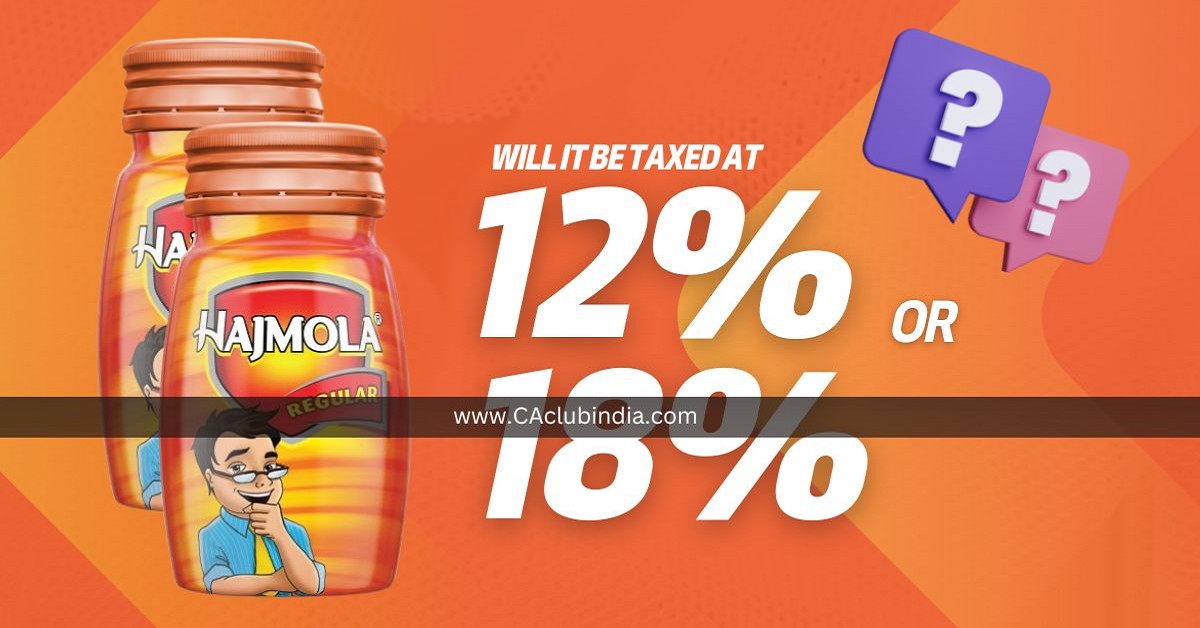Dabur India's iconic digestive candy Hajmola has come under the radar of the Directorate General of GST Intelligence (DGGI). According to a report, the DGGI's Coimbatore zone is probing whether Hajmola should be taxed as an ayurvedic medicine, attracting 12% GST or reclassified as a confectionery item, which carries a higher 18% GST.

This is not the first time the product has faced a classification challenge. In the pre-GST era, the matter had reached the Supreme Court, which ruled in favour of Dabur, stating that Hajmola was indeed an ayurvedic medicine and not just a sugar-based candy.
The latest probe revives that long-standing classification dispute in the context of GST regime. Dabur has maintained that Hajmola is a proprietary Ayurvedic formulation, not a regular sugar-boiled candy, and should continue to be taxed at the lower 12% rate applicable to Ayurvedic products.

Income Tax Demand Adds to Dabur's Troubles
Separately, on April 1, Dabur also disclosed that it had received an income tax reassessment order for the financial year 2017-18, demanding Rs 110.33 crore. The reassessment pertains to alleged incorrect deductions claimed under in-house R&D expenditure and Section 14A of the Income-tax Act, 1961.
These back-to-back regulatory challenges come at a time when the homegrown FMCG major is grappling with a slowdown in domestic demand. Dabur recently stated it expects flattish consolidated revenue growth for Q4 FY25, impacted by weak urban consumption and contracting profit margins by 150-175 basis points due to persistent inflationary pressure.
International Business Remains a Bright Spot
While the domestic FMCG segment is forecast to decline in mid-single digits, Dabur remains optimistic about its international markets, including the MENA region, Egypt and Bangladesh, which are expected to post robust double-digit growth. Around 25% of Dabur's revenue comes from overseas operations.
Dabur's product portfolio includes household names like Dabur Chyawanprash, Dabur Honey, Dabur Red Paste, Pudin Hara and Vatika, in addition to Hajmola-a brand that enjoys wide popularity across age groups in India.
As the GST classification investigation progresses, industry experts say the outcome could have wider implications for how functional or medicinal confectionery is treated under India's indirect tax regime.




 CAclubindia
CAclubindia

